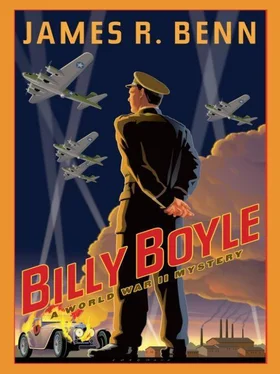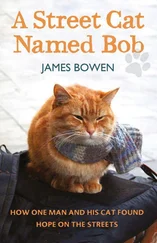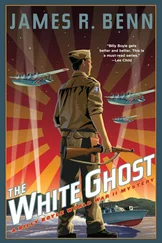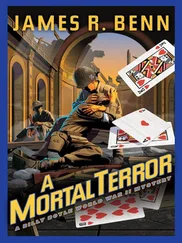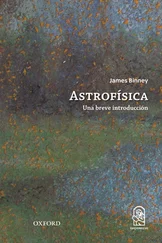James Benn - Billy Boyle
Здесь есть возможность читать онлайн «James Benn - Billy Boyle» весь текст электронной книги совершенно бесплатно (целиком полную версию без сокращений). В некоторых случаях можно слушать аудио, скачать через торрент в формате fb2 и присутствует краткое содержание. Жанр: Криминальный детектив, на английском языке. Описание произведения, (предисловие) а так же отзывы посетителей доступны на портале библиотеки ЛибКат.
- Название:Billy Boyle
- Автор:
- Жанр:
- Год:неизвестен
- ISBN:нет данных
- Рейтинг книги:5 / 5. Голосов: 1
-
Избранное:Добавить в избранное
- Отзывы:
-
Ваша оценка:
- 100
- 1
- 2
- 3
- 4
- 5
Billy Boyle: краткое содержание, описание и аннотация
Предлагаем к чтению аннотацию, описание, краткое содержание или предисловие (зависит от того, что написал сам автор книги «Billy Boyle»). Если вы не нашли необходимую информацию о книге — напишите в комментариях, мы постараемся отыскать её.
Billy Boyle — читать онлайн бесплатно полную книгу (весь текст) целиком
Ниже представлен текст книги, разбитый по страницам. Система сохранения места последней прочитанной страницы, позволяет с удобством читать онлайн бесплатно книгу «Billy Boyle», без необходимости каждый раз заново искать на чём Вы остановились. Поставьте закладку, и сможете в любой момент перейти на страницу, на которой закончили чтение.
Интервал:
Закладка:
Harding didn’t point out the sights on the way to the hotel. Some of those sights were piles of rubble where apartment houses and office buildings used to be. The Blitz hadn’t been as bad as it had been the previous year, but the place was still a target. As we passed by a row of white-painted brick houses with a gap like a missing front tooth in a wide grin, I caught sight of a river that I figured was the Thames. A pile of blackened rubble covered the ground between the houses, weeds creeping over the remains of the unlucky home. We turned a corner and had to stop as workers in blue coveralls hauled bricks away from a smoldering pile of debris that had slid out into the street. People going to work walked around the mess, carrying their newspapers, umbrellas, and briefcases as if it were completely normal to walk past bomb-damaged buildings. Shops across the street had OPEN FOR BUSINESS painted on wood planks nailed over shattered windows.
A London cop, his blue uniform a dingy shade of gray from concrete dust that lay thick on his shoulders, stood in the middle of the road and blew his whistle, holding up his hands as an ambulance passed cars on the other side of the blocked street. Traffic was already at a dead stop, but the pedestrians halted immediately, the murmur of movement and morning conversations stopped by the end of the shrill whistle blast. People parted and formed a narrow corridor as three stretchers were carried out of the destroyed building. Two held blanketed, inert forms. The third carried a person covered in soot highlighted by rust-colored dried blood along a leg and a hasty bandage wrapping a head. A thin female arm rose from the stretcher with two fingers raised in the V-for-victory sign as she was gingerly carried into the ambulance. There were murmurs of appreciation from the crowd, and then they drifted back into their morning routine. Another day at the war. The other two stretchers were left on the sidewalk for a journey to a different destination.
“Welcome to London,” Harding said as the traffic moved forward.
“Yes, sir.” Maybe I wouldn’t wave those sawbucks around for a while.
The river was the Thames. We crossed it on a bridge that showed off a scene I had seen on dozens of newsreels as I waited for the main feature to start. Parliament and Big Ben. London, under the gun. I could almost hear Edward R. Murrow saying, “This… is London” over the radio in our living room, that pause always giving a sense of weighty suspense as he reported on the Blitz and other war news. Now I was here. It didn’t seem real, as if my being here somehow lessened the importance of everything.
The rain had stopped, and the clouds were turning from threatening gray to puffy white. Harding zipped past Big Ben as the clock struck the half hour with that distinctive, authoritative bong that sounded so much louder than it had in the newsreels. Buildings were much larger on this side of the river, big imposing granite structures mounded with sandbags around their entrances. British soldiers stood guard as well-dressed officers with gleaming leather belts and polished buttons strode past them. We looped around a bit and ended up on a road with a park to its left. HYDE PARK CORNER, a sign said. I had heard of that. Harding pulled into a semicircular driveway in front of the Dorchester Hotel. He stopped. He didn’t take his hands off the wheel or look at me. A large lady wearing a hat with a big feather sticking out of it walked by, dragging a tiny dog on a leash. The dog dug in his heels and barked at the jeep, or Harding, or both. The lady kept walking, dragging the dog away, his toenails making a long scratching noise on the sidewalk as he tried to stand his ground.
“Here it is. Remember, 1100 hours.”
“Yes, sir.”
I got out, grabbed my duffel bag, and he drove away without even complimenting me on my proper military response. Standing on the curb, I could hardly locate the door of the Dorchester. The entire entrance was lined with sandbags, except for a narrow passageway. The front of the hotel was curved, facing the park across the street at an angle. A fountain marked the center of the driveway, and staff cars, after pulling around it, were discharging generals and guys wearing formal coats with vests and striped pants I thought had gone out of style before the last war. I felt out of place and thought maybe lowly Irish lieutenants from Boston were supposed to use the side entrance. I walked through the front door anyway, threading my way between sandbag walls and half carrying, half dragging my duffel bag through the door.
The reception desk was to my left in a small area dwarfed by a long marble hallway that stretched straight ahead. White flowers were everywhere, blending with the color of the marble and highlighted by soft white lights. Footsteps click-clacked all around me, but voices were hushed, as if this were church. Half of me wanted to turn around and find a rooming house with some normal people, someplace a little less fancy and not as heavy on marble and chandeliers. The other half of me couldn’t wait to see my room. I snapped out of my daydream of room service and a hot bath and walked over to the counter. A tall, balding guy stood behind it, his fountain pen drifting across paper.
“May I be of some assistance?” He literally looked down his nose at me. I had heard that expression before, but never actually seen it. I could practically count his nose hairs. The way he said it told me assistance was the last thing I could expect.
“Yeah. I need a room. Major Harding told me I was billeted here.”
“Your name?” I thought I could hear him shudder as he looked me over. I made a mental note that dried vomit seems to impress folks in England even less than it does in the States.
“Billy Boyle.”
“We have a room for a Lieutenant William Boyle?” There was a hint of hope that a more distinguished and cleaner member of the Boyle family would walk through the door behind me.
“Yep, that’s me.”
“Sign the register, please.” I admired him for hiding his disappointment so well. He even smiled when he handed me a key attached to a large disc and directed me to the elevator-the “lift,” he called it, which I figured was just what I needed. My room was on the fourteenth floor, but the elevator-lift-went only to the twelfth. There was no thirteenth, but a flight of stairs led to the fourteenth, which was actually the thirteenth floor. Lucky me.
I dragged my duffel bag behind me, thumping up each step. The hallway was narrow; it didn’t look much like a fancy hotel to me. I unlocked my door and went in. There was a small bed, a table, and a bureau, and one very small window that jutted out from a slanted ceiling. No bathroom. Then I got it. This was a servant’s room. That slanted ceiling was the roof. I had visited our cousin Margaret Boyle with my mom when she came over from Ireland to work as a domestic on Beacon Hill. She’d had an attic room just like this in the mansion where she worked.
Did that snob at the desk sense I was shanty Irish and belonged up here? Or were they just pressed for space with Americans pouring into London? Or had Major Harding made this very thoughtful arrangement for me? Screw it, I decided, a bed’s a bed. I unpacked my wrinkled khakis and shined my shoes. I found the bathroom down the hall and washed up. I wanted to sleep, but I was nervous about missing my date with Harding at eleven o’clock. Eleven hundred hours, I reminded myself. It was really a pain in the neck after noontime, but at least in the morning I didn’t have to count off on my fingers.
I was feeling good enough to be hungry and would’ve killed for a cup of coffee. I think it was still the middle of the night back home, but it was midmorning here and I didn’t have a clue where to get some grub. Then I realized I didn’t have any English money. Sitting in my little room, putting a final spit shine on my shoes, I felt forlorn. There had always been a relative or friend I could turn to when things got tough back in Boston. Here, I only knew a tight-assed American major and an even more tight-assed English hotel clerk. Oh, yeah, and Uncle Ike.
Читать дальшеИнтервал:
Закладка:
Похожие книги на «Billy Boyle»
Представляем Вашему вниманию похожие книги на «Billy Boyle» списком для выбора. Мы отобрали схожую по названию и смыслу литературу в надежде предоставить читателям больше вариантов отыскать новые, интересные, ещё непрочитанные произведения.
Обсуждение, отзывы о книге «Billy Boyle» и просто собственные мнения читателей. Оставьте ваши комментарии, напишите, что Вы думаете о произведении, его смысле или главных героях. Укажите что конкретно понравилось, а что нет, и почему Вы так считаете.
